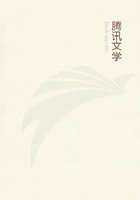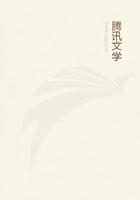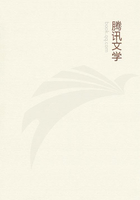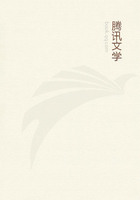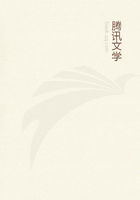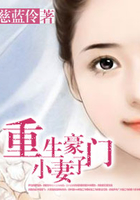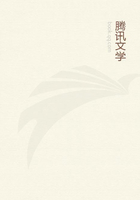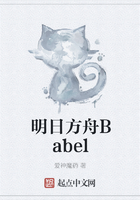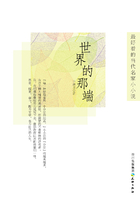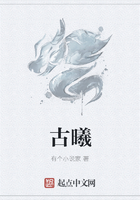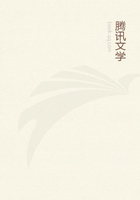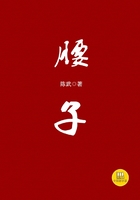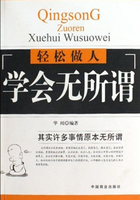Miss Tring broke in and said she considered "Le Visage Emerveille," by the Comtesse de Noailles, to be the most beautiful book of the century, with the exception, perhaps, of the "Tagebuch einer Verlorenen."
But from the end of the table Blenheim's utterance was heard preponderating over that of his neighbours. He was making a fine speech on the modern stage, comparing an actor-manager to Napoleon, and commenting on the campaigns of the latter in detail.
Quite heedless of this Mr. Willmott was carrying on an equally impassioned but much slower monologue on his conception of the character of Cyrano de Bergerac, which he said he intended to produce.
"Cyrano," he said, "has been maligned by Coquelin. Coquelin is a great artist, but he did not understand Cyrano. Cyrano is a dreamer, a poet; he is a martyr of thought like Tolstoi, a sacrifice to wasted, useless action, like Hamlet; he is a Moliere come too soon, a Bayard come too late, a John the Baptist of the stage, calling out in vain in the wilderness--of bricks and mortar; he is misunderstood;--an enigma, an anachronism, a premature herald, a false dawn."
Count Sciarra was engaged in a third monologue at the head of the table. He was talking at the same time to Mrs. Bergmann, Lady Irene, and Lady Hyacinth about the devil. "Ah que j'aime le diable!" he was saying in low, tender tones. "The devil who creates your beauty to lure us to destruction, the devil who puts honey into the voice of the siren, the dolce sirena--
"Che i marinari in mezzo il mar dismaga" (and he hummed this line in a sing-song two or three times over)--"the devil who makes us dream and doubt, and who made life interesting by persuading Eve to eat the silver apple--what would life have been if she had not eaten the apple? We should all be in the silly trees of the Garden of Eden, and I should be sitting next to you" (he said to Mrs. Bergmann), "without knowing that you were beautiful; que vous etes belle et que vous etes desirable; que vous etes puissante et caline, que je fais naufrage dans une mer d'amour--e il naufragio m'e dolce in questo mare--en un mot, que je vous aime."
"Life outside the garden of Eden has many drawbacks," said Mrs. Bergmann, who, although she was inwardly pleased by Count Sciarra's remarks, saw by Lady Irene's expression that she thought he was mad.
"Aucun 'drawback,' " answered Sciarra, "n'egalerait celui de comtempler les divins contours feminins sans un frisson. Pensez donc si Madame Bergmann----"
"Count Sciarra," interrupted Mrs. Bergmann, terrified of what was coming next, "do tell me about the book you are writing on Venice."
Mrs. Lockton was at that moment discussing portraiture in novels with M. Faubourg, and during a pause Miss Tring was heard to make the following remark: "And is it true M. Faubourg, that 'Cecile' in 'La Mauvaise Bonte' is a portrait of some one you once loved and who treated you very badly?"
M. Faubourg, a little embarrassed, said that a creative artist made a character out of many originals.
Then, seeing that nobody was saying a word to his neighbour, he turned round and asked him if he had been to the Academy.
"Yes," answered the stranger; "it gets worse every year doesn't it?"
"But Mr. Corporal's pictures are always worth seeing," said Faubourg.
"I think he paints men better than women," said the stranger; "he doesn't flatter people, but of course his pictures are very clever."
At this moment the attention of the whole table was monopolised by Osmond Hall, who began to discuss the scenario of a new play he was writing. "My play," he began, "is going to be called 'The King of the North Pole.' I have never been to the North Pole, and I don't mean to go there. It's not necessary to have first-hand knowledge of technical subjects in order to write a play. People say that Shakespeare must have studied the law, because his allusions to the law are frequent and accurate. That does not prove that he knew law any more than the fact that he put a sea in Bohemia proves that he did not know geography. It proves he was a dramatist. He wanted a sea in Bohemia.
He wanted lawyer's 'shop.' I should do just the same thing myself. I wrote a play about doctors, knowing nothing about medicine: I asked a friend to give me the necessary information. Shakespeare, I expect, asked his friends to give him the legal information he required."
Every allusion to Shakespeare was a stab to Mrs. Bergmann.
"Shakespeare's knowledge of the law is very thorough," broke in Lockton.
"Not so thorough as the knowledge of medicine which is revealed in my play," said Hall.
"Shakespeare knew law by intuition," murmured Willmott, "but he did not guess what the modern stage would make of his plays."
"Let us hope not," said Giles.
"Shakespeare," said Faubourg, "was a psychologue; he had the power, I cannot say it in English, de deviner ce qu'il ne savait pas en puisant dans le fond et le trefond de son ame."
"Gammon!" said Hall; "he had the power of asking his friends for the information he required."
"Do you really think," asked Giles, "that before he wrote 'Time delves the parallel on beauty's brow,' he consulted his lawyer as to a legal metaphor suitable for a sonnet?"
"And do you think," asked Mrs. Duncan, "that he asked his female relations what it would feel like to be jealous of Octavia if one happened to be Cleopatra?"
"Shakespeare was a married man," said Hall, "and if his wife found the MSS. of his sonnets lying about he must have known a jealous woman."
"Shakespeare evidently didn't trouble his friends for information on natural history, not for a playwright," said Hall. "I myself should not mind what liberty I took with the cuckoo, the bee, or even the basilisk. I should not trouble you for accurate information on the subject; I should not even mind saying the cuckoo lays eggs in its own nest if it suited the dramatic situation."
The whole of this conversation was torture to Mrs. Bergmann.
"Shakespeare," said Lady Hyacinth, "had a universal nature; one can't help thinking he was almost like God."

